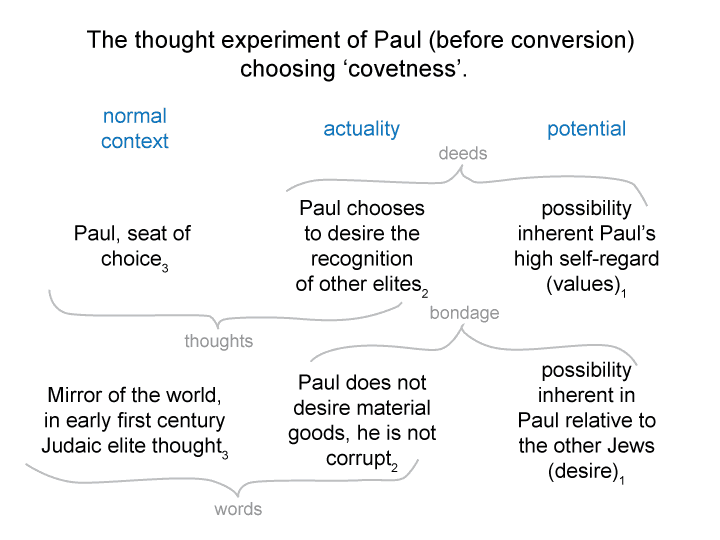Man and Sin by Piet Schoonenberg (1964) 2.3 LF
[The New Testament co-opposition of responsibilities3(2()) and freedom2(1) captures a moment of redefinition.
The bondage to the words of the Judaic law ended.
By choosing3b the way of Jesus2b, a converted Jew was more free1a to pursue “his” preferences in selecting responsibilities3a.
Ironically, the less political people of Christ’s way produced more wealth than the very political and wealth-devouring Jewish or Roman elites of the time.]

